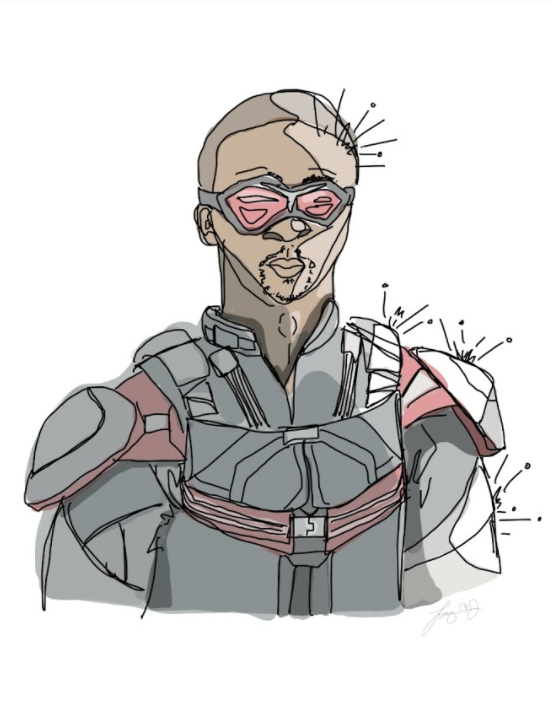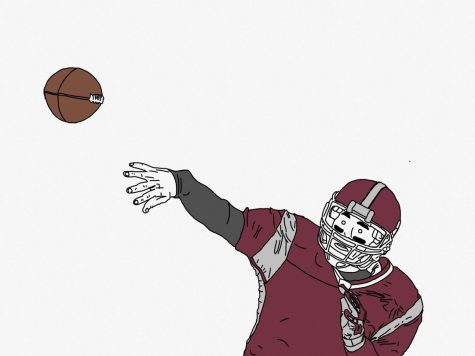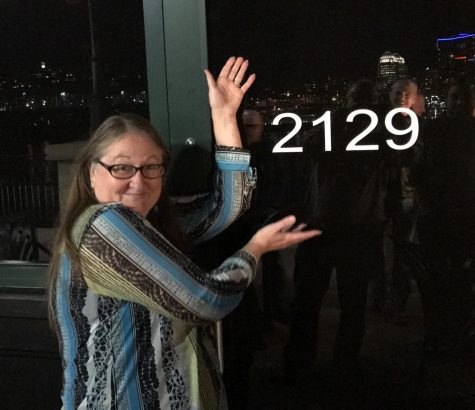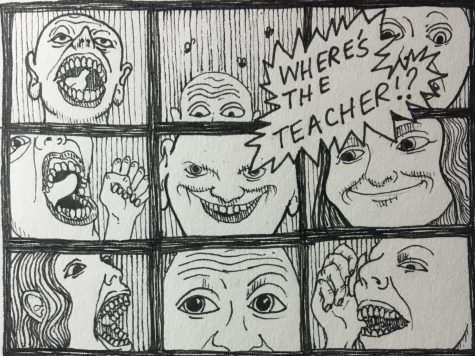“The Falcon and the Winter Soldier” soars to new heights for the Marvel Cinematic Universe
Proceeding the worldwide hype of sensational “Wanda Vision,” “The Falcon and the Winter Soldier” had very big shoes to fill. Yet even with such high expectations, “The Falcon and the Winter Soldier” proved to be an entertaining, worthwhile watch that will shape the future of the Marvel Cinematic Universe. While it followed a more familiar structure to past projects, it differed by offering a meaningful narrative and exploring the morals and motives of characters in great depth. Viewers found it refreshing to see the series tackle relevant social justice issues and to see a Black lead, which Marvel has been lacking for the past decade. It appears the series will be a turning point for Marvel, and fans can expect to finally see diverse leading characters and satisfying, impactful storylines.
The Marvel Cinematic Universe has a problematic past of lacking diverse characters. Out of 23 total movies, “Black Panther” is the only one with a non-white lead, and “Captain Marvel” is the only female lead movie. Though many of the comics that these movies are sourced from use diverse characters, this inclusiveness is lacking on screen. Many fans were disappointed when prior to the release of “Avengers: Endgame,” it was announced it would feature the first LGBTQ+ Marvel movie character, only for said character to be an irrelevant extra with mere seconds of screen time. Additionally, it is tiring to see Marvel’s female heroes be treated with weaker writing and storylines than their male counterparts, and to often appeal to sexist standards. Though diversity in the entertainment industry as a whole is weak, it has been especially lacking in the superhero genre. Superheroes are characters that are designed to be looked up to and admired, which is why having diverse characters and stories is so crucial. That is why so many enjoyed watching Anthony Mackie’s portrayal of Sam Wilson in “The Falcon and the Winter Soldier,” as his character was interesting and dynamic, and did not ignore his identity as a Black man within the storyline. Throughout the season’s six episodes, Sam grapples with the decision to embrace the iconic Captain America shield because of the social ideals and expectations it was founded upon.
“We wanted Sam to engage in both a public and private conversation of what it means for a Black man to pick up such an iconic historically white symbol,” Kari Skogland, the series’ director, said.
Emphasis is placed on the shield’s history when Sam’s request to retire the shield is violated, and it is instead given to John Walker, a white man sharing similar physical features to Steve Rogers (the previous Captain America). John Walker embodies white privilege, as he is granted the title of Captain America despite being unqualified and out of touch with the social needs of the nation. He constantly disrespects and undermines the work of Sam, in one scene asking him to be his “wingman” despite having less experience and knowing the shield was once his.
The addition of the character Isaiah Bradley further accentuates the unjust treatment Black heroes and stories are far too often subjected to. Isaiah reveals to Sam that he was used as a test subject for super-soldier serum, however, once it was successful, he did not become an international beloved icon like Steve Rogers; he was imprisoned and concealed from the public eye. When Sam later takes Steve Roger’s shield to him, Isaiah explains he has no respect for the piece of metal or becoming Captain America, and “no self-respecting Black man” should. Learning of Isaiah’s horrific experiences and exploitation leaves Sam torn on whether to accept the role of Captain America, or to completely separate himself from its racist roots. Ultimately, Sam chooses to embrace the title and shield, but on his terms. He recognizes that as a Black man, he will be under constant judgment and scrutiny, but remains motivated by the belief that the nation has the power needed for making change.
“The Falcon and the Winter Soldier” has amplified social justice conversations more than any previous Marvel project. While Sam’s struggle with adopting the Captain America persona was greatly explored, the series also incorporated the racial discrimination he endures as a Black man in everyday life. In one scene, tension arises between Sam and Bucky after Sam is first introduced to Isaiah. As they begin to argue, the police arrive and immediately conclude Sam is trying to hurt Bucky, and one officer goes as far to place his hand on his gun. It is only when the officers recognize Sam as an Avenger and international hero that they finally back down. Seeing Marvel address the pressing social issue of racial profiling is unexpected considering their ignorance in the past, but will ideally set an example for future projects to follow.
With many of Marvel’s upcoming projects featuring diverse characters such as “Shang-Chi and the Legend of the Ten Rings,” “The Eternals,” “Ms. Marvel,” and “The Marvels,” a future of inclusive superhero storytelling is in reach. Anthony Mackie’s long overdue role as the new Captain America will also continue to serve a lasting impact on what is to be expected from the Marvel Cinematic Universe. Though these changes will not erase a history of excluding ethnically diverse narratives, a new generation of viewers will finally receive the representation in heroes that they deserve.
Hello there! Our goal is to provide relavent, engaging journalism for readers of all ages. Your donation will support the student journalists of the Wolfpacket at Claremont High School, and will allow us to purchase equipment, print our monthly issues, and enter in journalism competitions. We appreciate your consideration!

Melina Tisopulos is a senior and the Editor-in-Chief of The Wolfpacket. Melina loves to write and intends on studying journalism or English in college....







